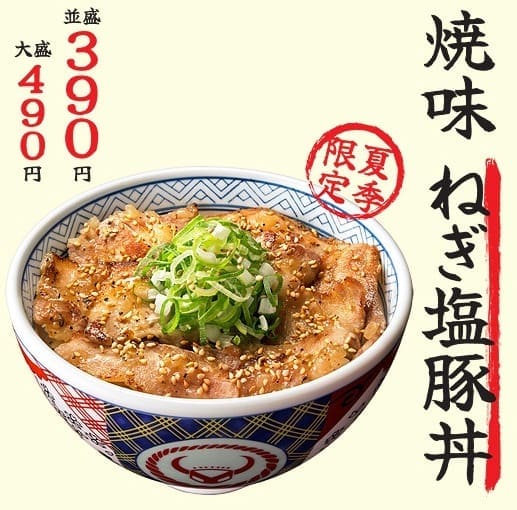 A monthly column written exclusively for Beef Central by US market commentator, Steve Kay, publisher of US Cattle Buyers Weekly
A monthly column written exclusively for Beef Central by US market commentator, Steve Kay, publisher of US Cattle Buyers Weekly
WALK down any street in Tokyo, or any Japanese city for that matter, and you’ll see a restaurant selling the country’s ubiquitous fast food, the gyudon beef bowl.
Gyudon chains like Sukiya, Yoshinoya and Matsuya, the three largest, and many others seem to be on every street corner.
These chains continue to satisfy Japanese consumers’ love of gyudon (thinly sliced marinated beef over rice) that began centuries ago.
Sukiya has about 2000 outlets in Japan and another 115 in other countries. Yoshinoya, established in 1899, has 1300 locations, with more than 1000 in Japan and some in the US.
Matsuya, established in 1966, has 1087 stores, mostly in Japan. A publicly-traded company, it had sales in the 12 months ended March 31 of 89 billion yen. Its sales were up 5.2pc on the previous year, which saw a 6pc plus increase from the year before.
The gyudon chains’ huge presence means they are valuable customers for beef from the US, Australia and other countries, especially for short plate. These are a boneless item extracted from the carcase between the brisket and the plate. The item is about 60-65pc lean meat, the rest fat – a combination that helps gyudon chains give their beef bowls their enhanced flavor.

Advertisement for Yoshinoya’s gyydon beef bowl
US and Australian exporters have sent short plates to Japan for decades. Most export plates are made into rectangular cuts, separated in a box by plastic film and then frozen. Japanese end-users take the frozen rectangle and run it through a machine akin to a bread slicer to producer wafer-thin strips that they drop into the beef bowl’s broth with other ingredients.
Just how important these exports are was seen after Japan suspended imports of all US beef in late 2003 after the US’s first BSE case. This cut off Yoshinoya’s main source of short plates and forced it to terminate beef bowl sales in Japan for the first time in its history. Yoshinoya switched to serving pork bowls instead of beef and only fully re-introduced the beef bowl in early 2008. Sukiya, on the other hand, kept its beef bowl by using Australian short plates.
Now the Japanese government has created another challenge for the gyudon chains. It has triggered its safeguard mechanism on frozen beef imports from the US, Canada, New Zealand and other countries that do not have trade agreements with Japan. As Beef Central has reported earlier, starting on August 1, Japan’s tariff on frozen beef imports from these countries increased from 38.5pc to 50pc, and will remain at this level until March 31 next year.
The only winner in this hike is Australia. All its frozen beef entering Japan is subject to a 27.2pc tariff (chilled, 29.9pc) because of its trade agreement with Japan. The move makes it even more imperative for the US to have a similar bilateral trade agreement with Japan, especially as it was the top export market in 2016 for US beef, with the trade valued at US $1.5 billion.
“The losers in the hike are the gyudon chains, Japanese consumers and US and other exporters.”
The losers in the hike are the gyudon chains, Japanese consumers and US and other exporters. The chains’ mantra is price. Yoshinoya’s motto from its inception has been “tasty, low-priced and quick”. The beef bowl is incredibly price-sensitive because of the intense competition among the chains. So they will be very reluctant to raise the price of their beef bowls.
The US in 2016 exported 90,397 tonnes of frozen beef cuts worth US $311 million to Japan. Of that, the single short plate cut accounted for 79,020t, valued at US$243m.
For January through June this year, Japan’s imports of US frozen beef were 51,330t valued at US$180m, up 20pc in volume from the same time last year. The volume included 46,490t of short plates, also up 20pc on last year, valued at US$154m, up 28pc from last year. These figures, based on Japanese import data, only include beef muscle cuts, not beef variety meat (including offals), because variety meat is not included in the safeguard.
The wholesale price of short plates is not reported in the US, but the above data shows that the average export price of short plates in 2016 was US$1.40 per pound and US$1.50 per pound in the first six months of this year.
US exporters will be pressured to lower prices
US exporters will be forced to lower their prices to keep selling at such volumes. The six-month average price plus the 38.5pc tariff meant end-users paid an average US $2.06 per lb. The same price plus a 50pc tariff increases US17c to US$2.25 per lb.
Gyudon chains will pressure US short plate suppliers to lower their prices to compensate for much of the 17c increase, say analysts. The price of short plates is likely to fall anyway this fall, as larger than year ago suppliers of fed cattle start to come to market, they say.
Gyudon chains in the past year had been rebuilding their short plate inventories amid growing consumer demand for the beef bowl dish. Japanese importers keep a close count on frozen beef imports from all countries. But they appear in this instance to have just misjudged the inflow, as imports were only 113t over the trigger amount in Japan’s first fiscal quarter.
Japan triggered the mechanism because frozen imports from the US and other countries in the April-June quarter exceeded the allowed 17pc increase from the year earlier quarter. But imports a year earlier were lower than in previous years, argues the US Meat Export Federation. Thus the growth in imports during the quarter in question was driven in part by rebuilding of frozen inventories and strong demand for beef in Japan’s foodservice sector, says USMEF.
In other words, the US and other countries are paying the price for helping Japan’s booming gyudon bowl business.
One can only hope Japan can be persuaded to reduce the increased tariff or revert to the 38.5pc level. The stumbling block is that the tariff increase was agreed to in 1994’s WTO Uruguay Round, and Japan will be unwilling to make any kind of waiver to that agreement, at least until after its new fiscal year begins next April.



HAVE YOUR SAY